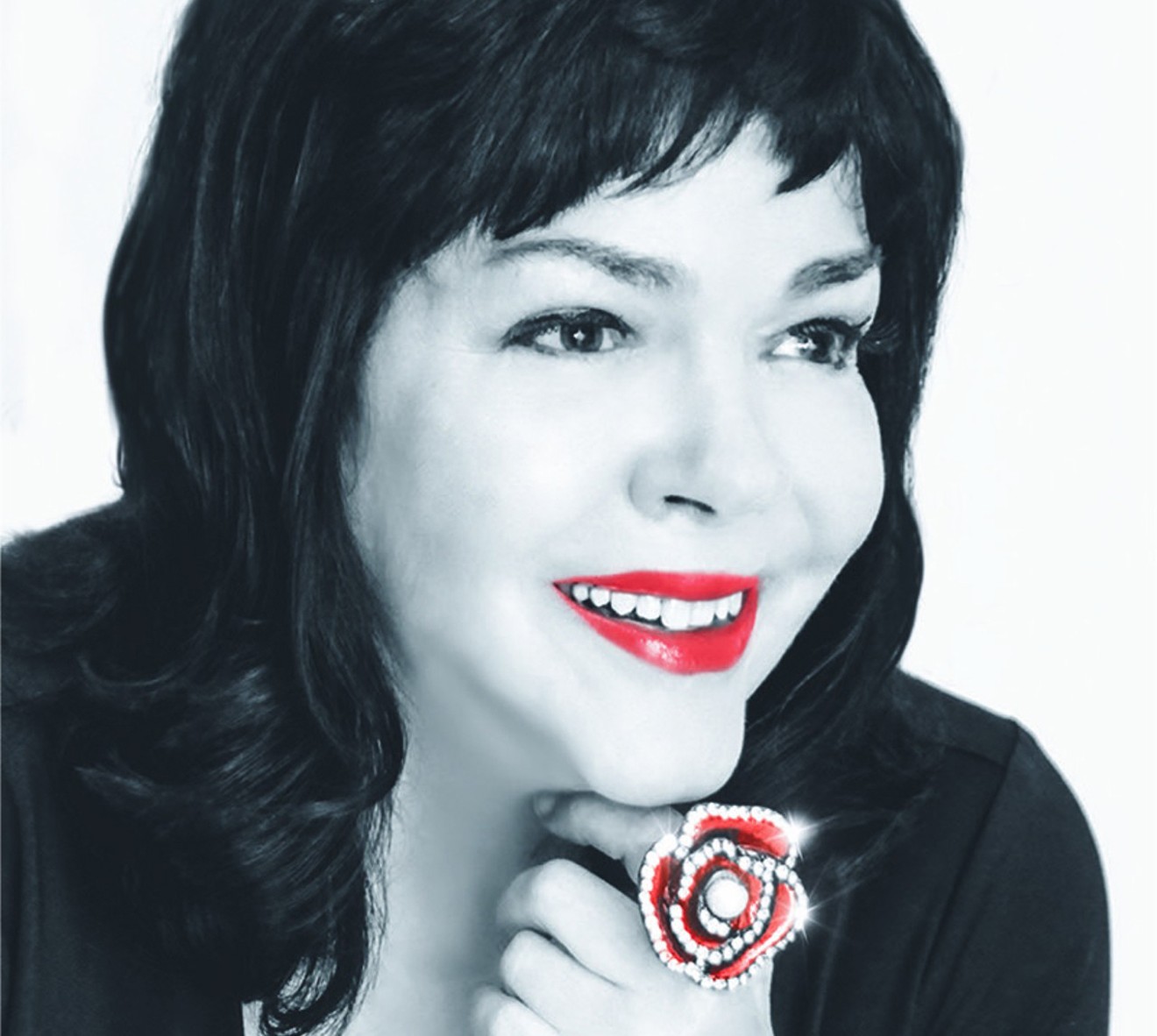There is no denying Luisa Maria Güell has an angelic voice. Singing mainly love songs, often backed by the drama of a big-band sound, she is an idol among Spanish speakers. Her back catalogue shows a diverse spectrum of influences, from tango to country and western all the way through soft rock and even reggaeton. But it's all linked by her voice, perfectly pitched and paced, binding it all together. During an interview, she launched into the chorus of "Enough Is Enough" by Diana Ross and declared her love for Barry White's music.
Her desire to have complete freedom of range and style is understandable, considering her early life. Born in Havana in 1940, she was first broadcast at the age of 5, when her mother took her to the studio of a children's radio program. Her natural talent was recognized, and soon she was enrolled in acting and music school.
"My mom wanted me to play the piano, but I didn't like playing the piano. I liked playing the guitar," recalls Güell. "I composed many songs on the guitar."
The Cubans called her "the girl with the golden voice." Her popularity spread quickly as she was hired to do commercials and make regular TV appearances.
In 1964, her hit "No Tengo Edad Para Amarte" (I'm Not Old Enough to Love You) catapulted her to national stardom. Güell received a scholarship from Cubanacan School of Art, where, she says, all was going well. But the consequences of the 1959 revolution began to threaten the course of her life. School officials told her she needed to take classes on Marxism. She defied the order and was sent to a labor camp.
The Cubans called her "the girl with the golden voice."
tweet this
"I decided to go to the labor camp and wait and see what would happen to me," she says. "I had to carry heavy stones that were so big I couldn't pick them up. I also worked in the coffee fields."
She served her sentence and realized her pop-idol fame in Cuba was hitting a dead end. With the help of a friend, she was able to move permanently to Spain, where she would later reach greater heights as a singer and composer.
In 1969, Güell teamed up with Spanish composer Manuel Alejandro. She was asked to reinterpret his song "Ya No Me Vuelvo a Enamorar (I'm Not Falling in Love Anymore)" and won first prize at the International Song Festival in Málaga, Spain. It was the beginning of a string of awards, including Paris' Edith Piaf Gold Medal. In fact, Güell has often been referred to as "the Cuban Edith Piaf."
Güell moved to Miami in 1983 to be with her mother and other relatives. She made a connection with the great Celia Cruz, who offered guidance and inspiration. In 2007, at the age of 67, Güell received a Grammy nomination in the category of Best Tango Album for Una. Her amazing versatility has enabled her to create a unique mix of classic Cuban rhythms like danzon/habanera, guaguanco, and son with fusions of pop, rock, rap, and reggae, while never straying too far from the roots of her style and its lush big-band orchestration.
And she's still not slowing down. This Saturday at Miami-Dade County Auditorium, Güell will perform to mark her 30th record release, Tu Canción, or "Your Song." The concert will be one of her most ambitious productions to date, covering the breadth of her musical career and featuring a special duet with the Grammy-winning violinist Federico Britos — a fitting commemoration for an artist whose desire for freedom elevated her talent to greatness.
Luisa Maria Güell. 8 p.m. Saturday, August 19, at Miami-Dade County Auditorium, 2901 W. Flagler St., Miami; 305-547-5414; miamidadecountyauditorium.org. Tickets cost $23 to $73 via ticketmaster.com.











